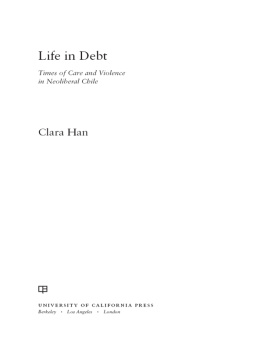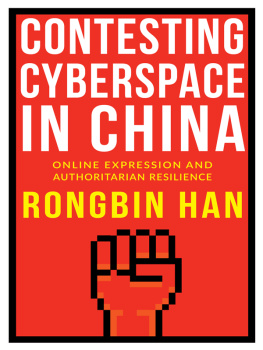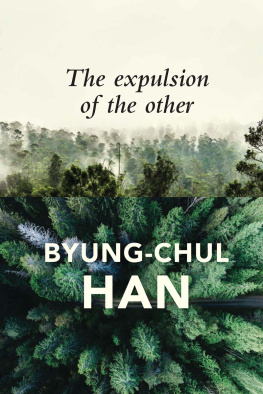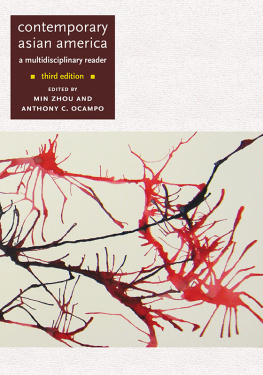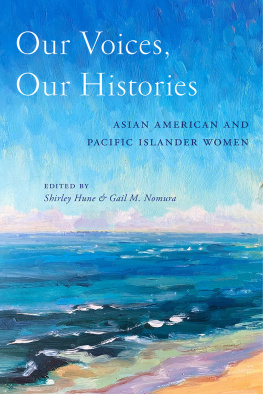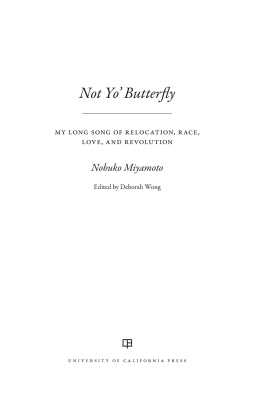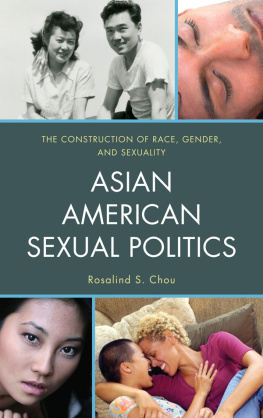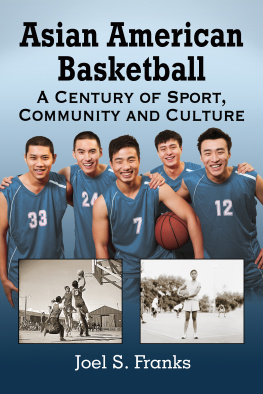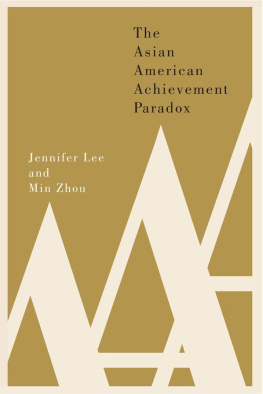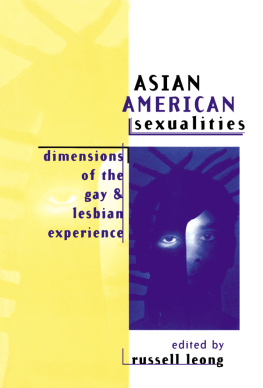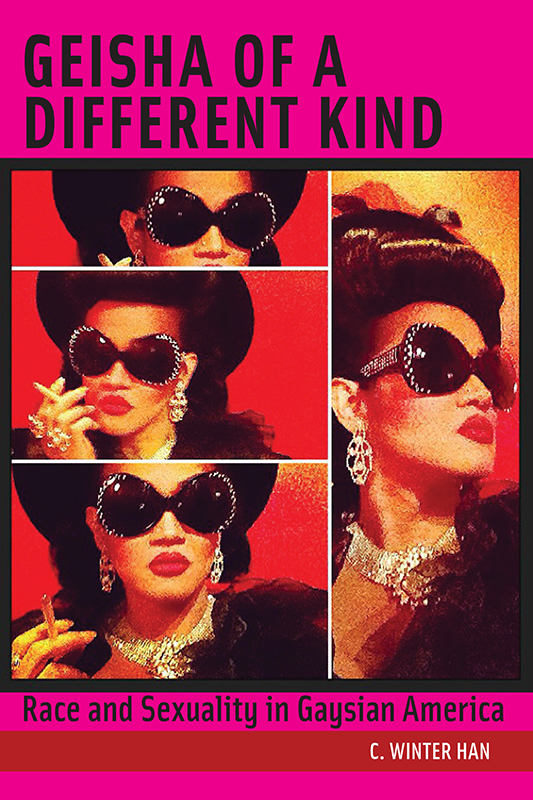C. Winter Han
References to Internet websites (URLs) were accurate at the time of writing. Neither the author nor New York University Press is responsible for URLs that may have expired or changed since the manuscript was prepared.
Han, C. Winter.
Geisha of a different kind : race and sexuality in gaysian America / C. Winter Han.
pages cm. (Intersections : transdisciplinary perspectives on genders and sexualities)
Includes bibliographical references and index.
ISBN 978-1-4798-3195-1 (cl : alk. paper) ISBN 978-1-4798-5520-9 (pb : alk. paper)
1. Asian American gay men. 2. MasculinityUnited States. 3. RacismUnited States. I. Title.
New York University Press books are printed on acid-free paper, and their binding materials are chosen for strength and durability. We strive to use environmentally responsible suppliers and materials to the greatest extent possible in publishing our books.
Few things are as nostalgic in an academic life as reading the final draft of a manuscript. Each line and each narrative reminds you of the journey from an idea to a finished product. But more important, each anecdote reminds you of a special person, a special place, or a special time. Reading this manuscript again, for the final time before it goes to press, has been greatly rewarding for me. It allowed me to visit places long left behind, remember friends who Ive met along the way, and develop a new sense of appreciation for the people who have stayed in my life long after the official project was over. So it seems fitting that I remember some of them more publicly, and thank them openly, for all that they have given me. No book is written entirely alone, no accomplishment is entirely of ones own doing, and this book is no exception.
I want to begin by thanking my friends and colleagues from the University of Washington, where this project first began to take shape. To Eddie Uehara who, through challenges both academic and personal, provided me unconditional support. Rick Bonus, who patiently listened to my tales of woe and shared some of his own. Lew Gilchrist, whose calm and reassuring support provided me the much needed voice of reason to help me maintain my own balance during frustrating times. Connie So, a true friend who taught me that principles are more important than careers. Johnnella Butler, who did her best to protect me from the fray. Sam Solberg, a friend I miss and think of often. Tony Ishisaka, for providing much needed laughs. And Susan Kemp and Karina Walters, for believing that I was smarter than I probably was at the time. Finally, I owe a most spectacular debt to Ana Mari Cauce, whose unwavering belief that I could do this made me determined to prove her right.
I want to extend a warm note of gratitude to my longtime mentor and friend, Kyung-Hee Choi. When I met her, I was a disgruntled graduate student, disillusioned with my research topic and long ready to leave graduate school had it not been for the health insurance. It was then that I took a job as a research associate for the Young Asian Mens Study (YAMS). It was at YAMS that I began developing the questions that drove the research for this book. At YAMS, I also met my friend Kristopher Ryan Proctor, the best friend a person could ask for. I also met Aleks Martin, aka Aleksa Manila. Aleksa taught me that you dont need a mask and a cape to be a superhero, although you might need some lipstick and mascara. Rounding out the team at YAMS was Wilmer Galindo, whose enthusiasm for life is contagious. Wilmer taught me that you can always have fun, if you put your mind to it.
It was also through YAMS that I came to meet, or better know, an incredible group of gay Asian men, some of whom will see themselves in the pages of this book. I hope I have done justice in capturing your strength and perseverance as well as giving voice to your struggles. While it would be impossible to name them all, I would be remiss if I didnt mention my constant companions, Kieu-Anh King and Phi Hyunh. Kieu-Ahn and Phi came into my life just when I needed them and taught me how to live life on my own terms.
Although I grew up in San Francisco, I consider Seattle to be my home, for it is there that I truly found myself. A big part of finding myself, I suspect, was due to my time at the International Examiner, where I spent three years as the editor-in-chief. Through the Examiner, I found a community, both real and remembered. It was there that I found people who nurtured me and fed my curiosity and taught me what it truly means to be part of a community. I would like to particularly thank Bob Santos, Arlene Oki, Gary Iwamoto, Cindy Domingo, Frankie Irigon, Elaine Ishihara, Anne Clark, Doug Chin, Nhan Thai, Paul Chen, Bernadette Connor, Alan Lau, Naomi Ishisaka, Bea Kiychara, Melissa Lin, Jane Liaw, and Matthew Benuska. Of course, Ellen Suzuki deserves a sentence of her own. In solidarity, always.
In academic lore, tales of horrible colleagues sometimes border on the macabre. I am truly fortunate that I have none of those tales to share. My colleagues at Middlebury have offered me nothing but support. For that, I will always be grateful. Peggy Nelsonone couldnt ask for a better role model. Ellen Oxfeld, who has always left her door open for me, both figuratively and literally. David Stoll, for teaching me that there are some things I dont have to worry about. Linus Owens, for showing me that not only can you march to the beat of a different drum, you can beat the drums yourself. James Fitzsimmons, living proof that sometimes good things do happen for good people. Rebecca Tiger, who taught me to be braver than I naturally am. Jamie McCallum, for strengthening my commitment to work toward a better, more just, society. Michael Sheridan, who I grow to respect and value more and more, the more I get to know him. Svea Closser, whose one-word email of Yay! after I accepted the job made me smile for days. Marybeth Nevins, who makes up for her inability to keep up with me at a Chinese buffet with her many other wonderful, and much more useful, qualities. Laurie Essig, my friend and colleague, whichever direction the road may lead and wherever it may fork. And finally, Mari Price and Charlene Barrett, who have kept my life infinitely better organized than it would have been without them. Outside of my department, special thanks to Kevin Moss, Sujata Moorti, Roberto Lint Sagarena, Natasha Chang, James Davis, Burke Rochford, Susan Campbell Baldridge, Jennifer Herrera, Timothy Billings, and Karen Guttentag, for gestures of kindness, both big and small.


